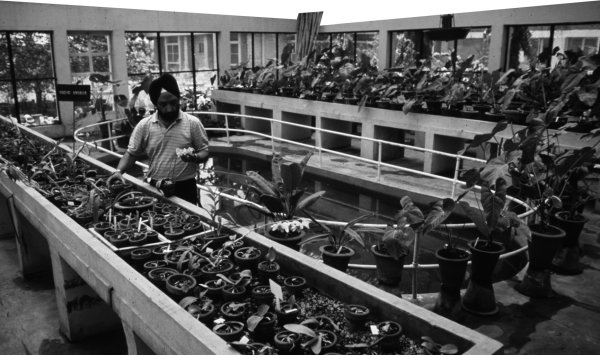


The TRIPS Agreement, adopted as part of the Marrakesh Agreement, contains minimum standards for the protection of almost all areas of intellectual property. WTO member countries failing to comply with these standards may be subject to dispute settlement procedures within WTO and eventually to trade sanctions.
FAO's main interest in the TRIPS Agreement relates to intellectual property rights over plant varieties, animal breeds, related technologies and germplasm, and it is in these areas that FAO has technical expertise.
The Plant Production and Protection Division and the Animal Production and Health Division of FAO have extensive experience in assisting member countries with those aspects of TRIPS associated with genetic resources conservation and utilization, seed policies and programmes and plant and animal breeding. The Development Law Service of the FAO Legal Office assists member countries with seed and propagating material legislation and regulations, plant varietal protection (PVP) legislation, including sui generis systems, and plant breeders' and farmers' rights.
Part 3 of the TRIPS Agreement sets out the obligations for Member Governments to provide procedures and remedies under their domestic law that:
|
FAO's observer status on the TRIPS Council of WTO reflects the importance of its role in helping member countries meet their obligations under the Agreement.
FAO's Commission on Genetic Resources for Food and Agriculture has a specific interest in the implications and implementation of Article 27.3(b) of the TRIPS Agreement, which requires all WTO members to provide PVP either by patents or a sui generis system, or a mixture of both, with the provision that their actions will be subject to review four years after the entry into force of the WTO Agreement. The obligation of WTO's developing country members to adopt PVP has important implications for the development of their agricultural economies and trade. The provision for review, which takes effect from 1 January 1999, has generated both interest and concern about action to be taken, and many countries are seeking technical advice and assistance.
FAO technical assistance to developing countries in relation to TRIPS is focused on assisting national authorities in analysing their needs and identifying appropriate policy options; formulating or revising national legislation; and advising on the structure and functions of the institutions involved.
FAO's experience over many years has shown that justice cannot be done to the particular needs and circumstances of individual countries by theoretical studies or model laws. Sui generis systems can be developed to suit the need of individual countries.
In TRIPS-related matters, FAO provides:
